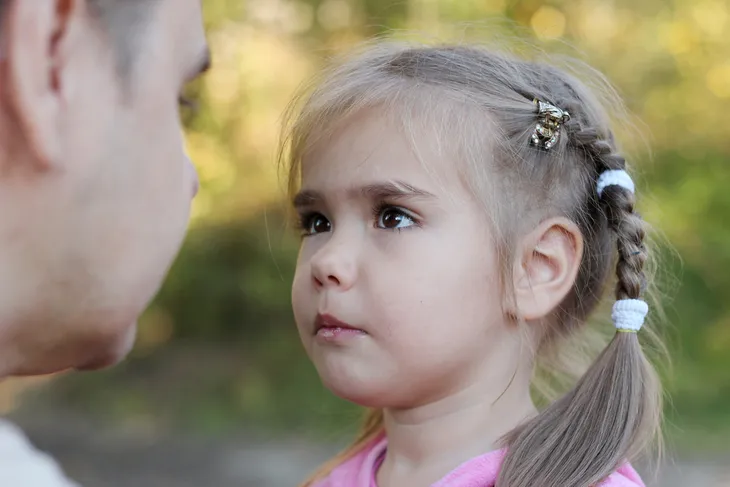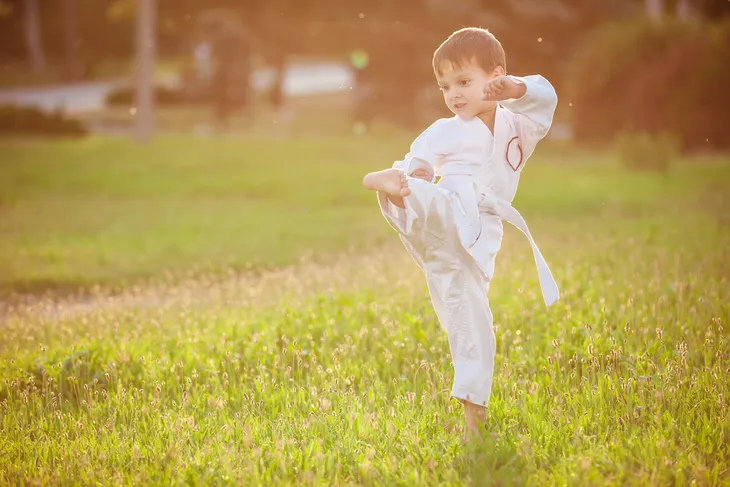If your kid is lashing out, it doesn’t make them a bad child. It probably just means they are probably vying for attention, or there’s another underlying problem that’s driving their behavior.
However, instead of harshly punishing your child (which can make the problem worse), there are other approaches that can help calm them down and be more cooperative with you and their peers. Here are seven ways to address aggressive children…
1. Find The Triggers
HealthCentral.com explains that taking an “if-then” approach to parenting could be helpful in this situation. It centers on finding out what makes your kid most frustrated, and then teaching them alternative strategies to avoid them building anger.
For example, perhaps your child doesn’t like it when a toy isn’t working, or gets upset if they perceive that someone is criticizing them. In these situations, you can teach you child ways to manage the situation such as asking for help or vocalizing their feelings instead of getting physical, adds the source.
2. Show Empathy
Care.com says relating to your child on their level can go a long way to avoid aggressive reactions. For example, you could say something like, “I know it’s hard to not get your way. I don’t like that feeling either,” instead of yelling at them for their behavior, it notes.
It stressed to “show compassion without giving in to the child’s demands,” while offering hugs and an accepting demeanor. “This tells the child he’s safe here and doesn’t need to be ashamed of his feelings. He’ll learn that he can’t hit — but he won’t lose your love, no matter what,” explains the source.
3. Be a Role Model
UrbanChildInstitute.org explains in an article that children absorb behaviors from their environment – including the home. “Research in the area of child development has illustrated that frequent exposure to violence in the home significantly increases a child’s risk of developing aggressive behavior,” it notes.
If you’re having a feud with your spouse, try to take the high road and at least don’t have the discussion within earshot of your child, who could pick up cues. Try to use respectful language when you’re angry, just like you’d expect your child to. If you show good anger management skills (such as pausing to take a few deep breaths) then your child may also adopt these positive coping techniques, adds the source.
4. Set Consequences
If your child learns a pattern that lashing out won’t be tolerated, they may start to self-govern. Aside from reinforcing to your child that “hitting is wrong” in words each time they act out, you should also “have a plan in place for consequences” if aggressive behavior starts, notes EmpowerParents.com.
The source says this can include a time-out by themselves in a chair until they calm down, or if they’re a bit older (3 to 7), you can tell them they’ll lose privileges (such as watching television or using their tablet for examples), it adds. On a side note, you can also tell them that while you’d never harm them, another child might hit back.
5. Divert Their Energy
HealthCentral says you can channel your child’s aggression to other more useful channels if they need to burn off some emotional energy. “Pounding clay, running, jumping on a trampoline, or playing a sport may help divert negative energy into something they enjoy,” it explains.
It also suggests using creative outlets such as writing, music or drama to help your child “explore their feelings and passions in a socially acceptable way.” And who knows, your child may find a hidden talent they really enjoy in the process.
6. Don’t Celebrate ‘Toughness’
Parents.com says there’s still a culture of households teaching their young ones to be tough, especially in the case of little boys. “Parents often use the word ‘tough’ to compliment a child,” notes the source.
This can actually reinforce a child’s belief that they need to kick or bite to win your approval as a parent, it says. Instead, teach them that being strong involves having self-control, showing compassion, being helpful, and using good communication when they’re frustrated.
7. Modify Their Diet
Aside from teaching your children positive behaviors, you can help the process by taking a closer look at what they’re eating. Livestrong.com refers to 2-diets in particular that may help your child have less angry energy: the Feingold Diet and the gluten-free diet.
The Feingold diet was developed in the 1970’s by Dr. Benjamin Feingold, and involves the removal of artificial coloring, flavors and sweeteners as well as preservatives (and foods high in salicylates) from the diet. This technique apparently has an 80-percent success rate to curb aggression and ADHD, notes the source. Meanwhile, eliminating gluten from your child’s diet isn’t as proven, “as research has yet to find a strong link between this diet and an improvement in aggressive behavior.” If diet changes (and positive reinforcement) don’t work, look to other contributing factors for anger before turning to any medications, it adds.










